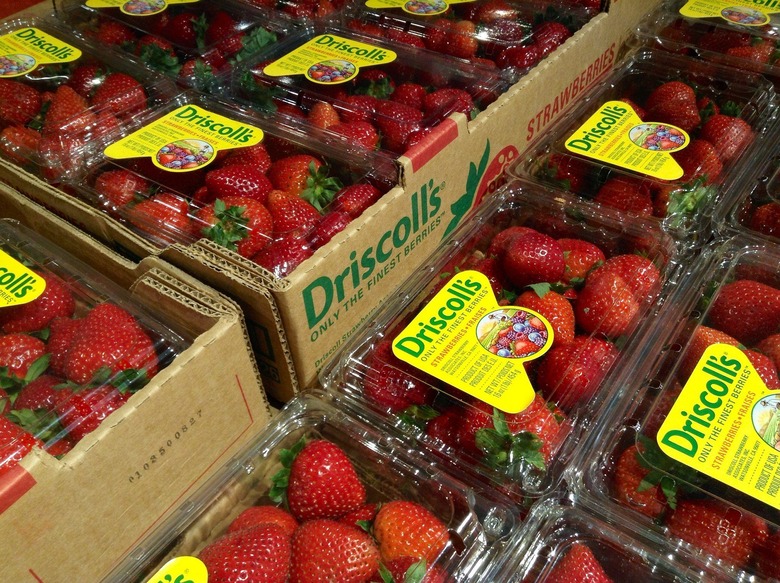Binational Protests Decry Working Conditions For Strawberry Pickers
Protesters on both sides of the border between the United States and Mexico held a demonstration calling for better working conditions for Mexican farm laborers in the Valle de San Quintín.
This particular region supplies much of North America's strawberries and tomatoes, and at this time of year 80 percent of berries come from this region, according to Snopes.
Hundreds of laborers and supporters walked for several days in support of their cause and in commemoration of the anniversary of the 2015 strike, which was the largest strike of Mexican farmworkers in decades, reports Al Jazeera. At the 2015 strike, pickers walked out of the fields at the peak of harvest and were met with police violence.
The strikes then and now protest the widespread inhumane working conditions and low pay for farmworkers picking strawberries and other fruits. Workers are currently paid about $7-$10 a day, and they complain that treatment and pay has not improved despite promises made by berry companies after the 2015 strikes, says Snopes.
Driscoll's tells The Daily Meal that it "continue[s] to hold growers responsible and ensure certain standards are being upheld." To this end, the company has instituted formalized standards for global worker welfare and works with third party auditing forms to ensure standards are being upheld. The company says, "The simple truth is, Driscoll's has and will continue to demonstrate leadership in the agriculture industry by facilitating initiatives and standards which support socially responsible business practices, including worker welfare."
Activists and supporters of a Washington union, Familias United for Justice (FUJ), have launched a campaign to boycott Driscoll's berries in order to pressure the U.S. government to push the company to change its labor practices and raise wages, reports KLCC.
Regarding this secondary boycott, Driscoll's tells The Daily Meal, "Last year, we met with several members of FUJ to clearly communicate our role when it comes to unions, freedom of association and collective bargaining, Driscoll's cannot legally mandate our independent growers to recognize FUJ or other similar organizations as formal unions.
While we acknowledge FUJ's desire to become a legally recognized union, current Washington State law does not yet include a provision for farmworker unions." According to the company, the boycott is an effort to pressure Driscoll's into playing a role in the labor negotiations between the group and the Sakuma Brothers, an independent grower for Driscoll's.
